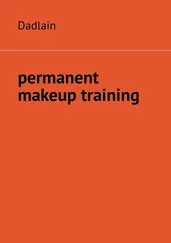I wish I remembered the exact chronology of my contracting, but I don’t have a copy of my résumé anymore—that file, Edward_Snowden_Resume.doc, is locked up in the Documents folder of one of my old home computers, since seized by the FBI. I do recall, however, that my first major contracting gig was actually a subcontracting gig: the CIA had hired BAE Systems, which had hired COMSO, which hired me.
BAE Systems is a midsize American subdivision of British Aerospace, set up expressly to win contracts from the American IC. COMSO was basically its recruiter, a few folks who spent all their time driving around the Beltway trying to find the actual contractors (“the asses”) and sign them up (“put the asses in chairs”). Of all the companies I talked to at the job fairs, COMSO was the hungriest, perhaps because it was among the smallest. I never learned what the company’s acronym stood for, or even if it stood for anything. Technically speaking, COMSO would be my employer, but I never worked a single day at a COMSO office, or at a BAE Systems office, and few contractors ever would. I’d only work at CIA headquarters.
In fact, I only ever visited the COMSO office, which was in Greenbelt, Maryland, maybe two or three times in my life. One of these was when I went down there to negotiate my salary and sign some paperwork. At CASL I’d been making around $30K/year, but that job didn’t have anything to do with technology, so I felt comfortable asking COMSO for $50K. When I named that figure to the guy behind the desk, he said, “What about $60K?”
At the time I was so inexperienced, I didn’t understand why he was trying to overpay me. I knew, I guess, that this wasn’t ultimately COMSO’s money, but I only later understood that some of the contracts that COMSO and BAE and others handled were of the type that’s called “cost-plus.” This meant that the middlemen contractors billed the agencies for whatever an employee got paid, plus a fee of 3 to 5 percent of that every year. Bumping up salaries was in everyone’s interest—everyone’s, that is, except the taxpayer’s.
The COMSO guy eventually talked me, or himself, up to $62K, as a result of my once again agreeing to work the night shift. He held out his hand and, as I shook it, he introduced himself to me as my “manager.” He went on to explain that the title was just a formality, and that I’d be taking my orders directly from the CIA. “If all goes well,” he said, “we’ll never meet again.”
In the spy movies and TV shows, when someone tells you something like that, it usually means that you’re about to go on a dangerous mission and might die. But in real spy life it just means, “Congratulations on the job.” By the time I was out the door, I’m sure he’d already forgotten my face.
I left that meeting in a buoyant mood, but on the drive back, reality set in: this, I realized, was going to be my daily commute. If I was going to still live in Ellicott City, Maryland, in proximity to Lindsay, but work at the CIA in Virginia, my commute could be up to an hour and a half each way in Beltway gridlock, and that would be the end of me. I knew it wouldn’t take long before I’d start to lose my mind. There weren’t enough books on tape in the universe.
I couldn’t ask Lindsay to move down to Virginia with me because she was still just in her sophomore year at MICA, and had class three days a week. We discussed this, and for cover referred to my job down there as COMSO—as in, “Why does COMSO have to be so far away?” Finally, we decided that I’d find a small place down there, near COMSO— just a small place to crash at during the days while I worked at night, at COMSO —and then I’d come up to Maryland again every weekend, or she’d come down to me.
I set off to find that place, something smack in the middle of that Venn diagram overlap of cheap enough that I could afford it and nice enough that Lindsay could survive it. It turned out to be a difficult search: Given the number of people who work at the CIA, and the CIA’s location in Virginia—where the housing density is, let’s say, semirural—the prices were through the roof. The 22100s are some of the most expensive zip codes in America.
Eventually, browsing on Craigslist, I found a room that was surprisingly within my budget, in a house surprisingly near—less than fifteen minutes from—CIA headquarters. I went to check it out, expecting a cruddy bachelor pad pigsty. Instead, I pulled up in front of a large glass-fronted McMansion, immaculately maintained with a topiary lawn that was seasonally decorated. I’m being completely serious when I say that as I approached the place, the smell of pumpkin spice got stronger.
A guy named Gary answered the door. He was older, which I expected from the “Dear Edward” tone of his email, but I hadn’t expected him to be so well dressed. He was very tall, with buzz-cut gray hair, and was wearing a suit, and over the suit, an apron. He asked me very politely if I didn’t mind waiting a moment. He was just then busy in the kitchen, where he was preparing a tray of apples, sticking cloves in them and dousing them with nutmeg, cinnamon, and sugar.
Once those apples were baking in the oven, Gary showed me the room, which was in the basement, and told me I could move in immediately. I accepted the offer and put down my security deposit and one month’s rent.
Then he told me the house rules, which helpfully rhymed:
No mess.
No pets.
No overnight guests.
I confess that I almost immediately violated the first rule, and that I never had any interest in violating the second. As for the third, Gary made an exception for Lindsay.
You know that one establishing shot that’s in pretty much every spy movie and TV show that’s subtitled “CIA Headquarters, Langley, Virginia”? And then the camera moves through the marble lobby with the wall of stars and the floor with the agency’s seal? Well, Langley is the site’s historical name, which the agency prefers Hollywood to use; CIA HQ is officially in McLean, Virginia; and nobody really comes through that lobby except VIPs or outsiders on a tour.
That building is the OHB, the Old Headquarters Building. The building where almost everybody who works at the CIA enters is far less ready for its close-up: the NHB, the New Headquarters Building. My first day was one of the very few I spent there in daylight. That said, I spent most of the day underground—in a grimy, cinder-block-walled room with all the charm of a nuclear fallout shelter and the acrid smell of government bleach.
“So this is the Deep State,” one guy said, and almost everybody laughed. I think he’d been expecting a circle of Ivy League WASPs chanting in hoods, whereas I’d been expecting a group of normie civil service types who resembled younger versions of my parents. Instead, we were all computer dudes—and yes, almost uniformly dudes—who were clearly wearing “business casual” for the first time in our lives. Some were tattooed and pierced, or bore evidence of having removed their piercings for the big day. One still had punky streaks of dye in his hair. Almost all wore contractor badges, as green and crisp as new hundred-dollar bills. We certainly didn’t look like a hermetic power-mad cabal that controlled the actions of America’s elected officials from shadowy subterranean cubicles.
This session was the first stage in our transformation. It was called the Indoc, or Indoctrination, and its entire point was to convince us that we were the elite, that we were special, that we had been chosen to be privy to the mysteries of state and to the truths that the rest of the country—and, at times, even its Congress and courts—couldn’t handle.
I couldn’t help but think while I sat through this Indoc that the presenters were preaching to the choir. You don’t need to tell a bunch of computer whizzes that they possess superior knowledge and skills that uniquely qualify them to act independently and make decisions on behalf of their fellow citizens without any oversight or review. Nothing inspires arrogance like a lifetime spent controlling machines that are incapable of criticism.
Читать дальше












